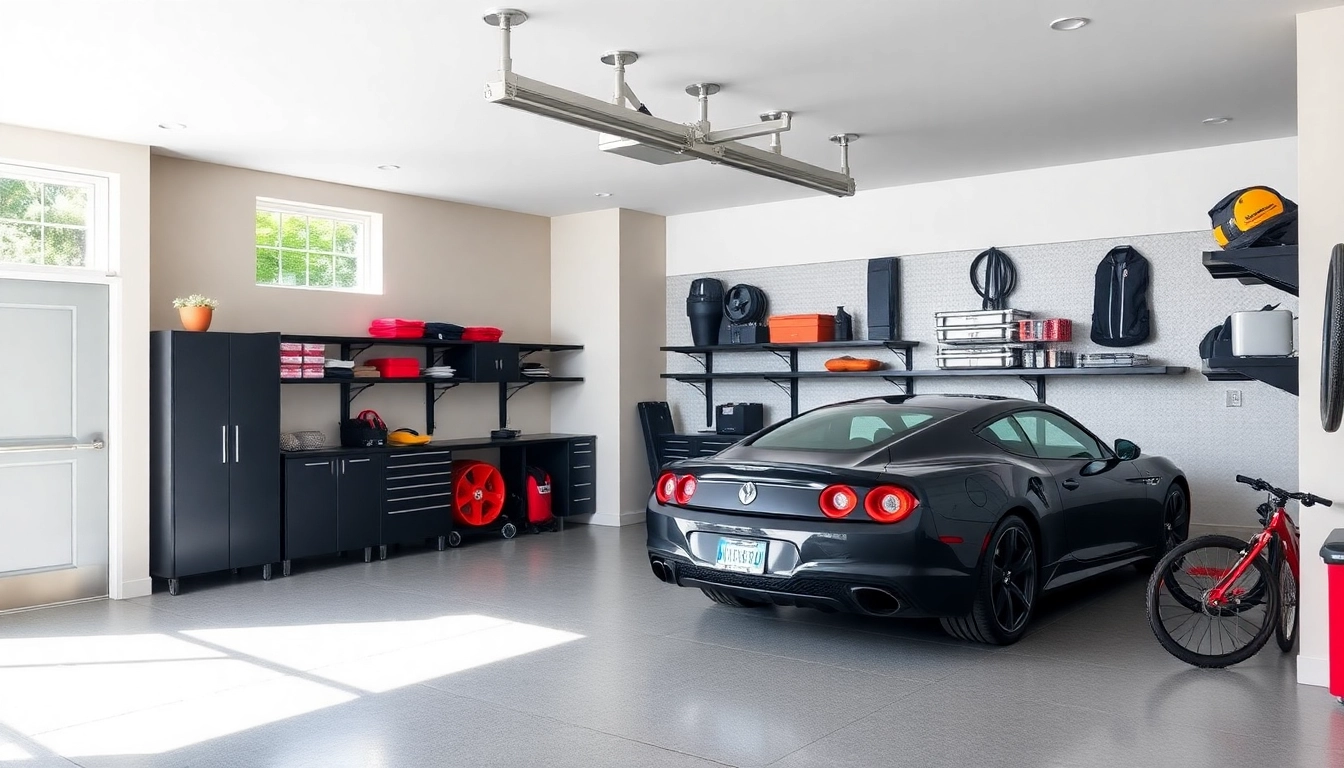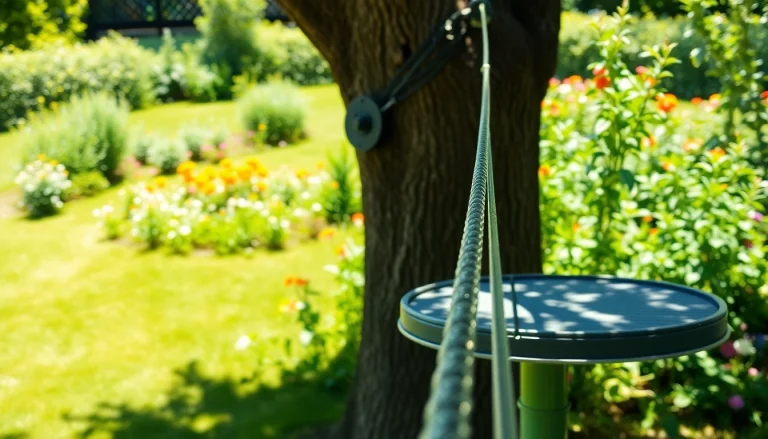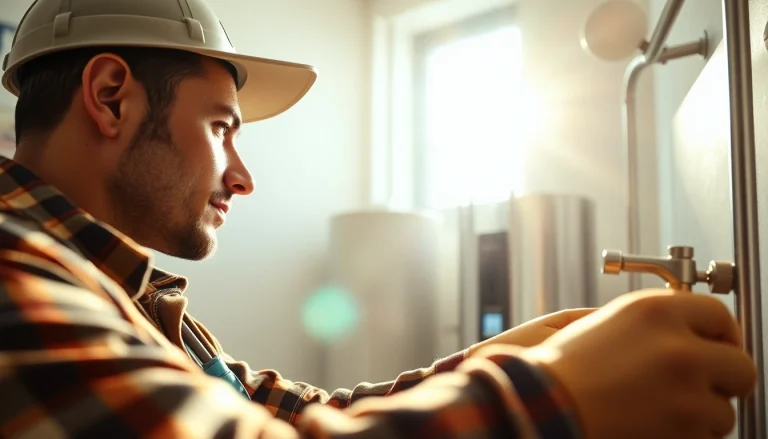
Understanding Custom Garages: An Overview
Custom garages are designed and built to cater to the specific needs and preferences of homeowners. Unlike standard garages, which often come in fixed sizes and specifications, custom garages provide the flexibility to tailor dimensions, materials, functionality, and aesthetics to align with personal style and requirements. For individuals looking to enhance their property, investing in custom garages opens up a world of possibilities—from creating a unique workspace to providing extra storage for recreational vehicles. In this article, we delve into what custom garages entail, their advantages, the design process, costs, and tips for maintenance.
What Are Custom Garages?
Custom garages are more than just simple storage spaces for vehicles. They are versatile structures that can be manufactured to homeowners’ specific requirements. These garages can serve a variety of purposes, including:
- Storing vehicles, such as cars, motorcycles, or boats.
- Providing functional workspaces for hobbies like woodworking, mechanics, or crafting.
- Offering additional storage for seasonal items, tools, or equipment.
- Acting as a recreational or entertainment space with the addition of climate control for year-round use.
The customization options are vast, ranging from dimensions and styles to finishes and door types, allowing homeowners to create a garage that reflects their lifestyle and preferences.
Benefits of Choosing Custom Solutions
Opting for a custom garage comes with numerous advantages:
- Tailored Design: Homeowners can create a garage that meets their unique needs, from size to layout to integrated features.
- Enhanced Property Value: A custom garage can significantly boost the value of a home, appealing to prospective buyers.
- Increased Functionality: Custom designs allow homeowners to incorporate features that enhance usability, like built-in storage solutions and efficient workspaces.
- Aesthetic Appeal: Specific designs can complement the overall architecture of a home, lending to a cohesive look and feel.
- Long-term Investment: A well-built custom garage is durable, withstands the elements, and can serve multiple purposes over its lifespan.
Popular Features and Amenities
The unique allure of custom garages lies not only in their design but also in the various features homeowners can incorporate. Some popular elements include:
- Insulation and Climate Control: Keeping the garage comfortable year-round can be essential for tasks or storage.
- Storage Solutions: Integrated cabinets, shelving units, and overhead racks help optimize space and organization.
- Lighting and Power Outlets: Sufficient lighting and electrical outlets facilitate a functional work environment.
- High-Quality Materials: Features like durable flooring, custom doors, and weather-resistant siding enhance longevity and aesthetic appeal.
- Integrated Workbenches and Workshops: Building in dedicated areas for hobbies adds utility to the garage.
Designing Your Dream Custom Garage
Designing a custom garage is an exciting endeavor that can ultimately enhance the functionality and aesthetics of your property. However, it requires careful planning and intent to ensure the result meets your needs.
Essential Considerations for Custom Garage Design
Before diving into the design and construction phases, consider the following essential elements:
- Purpose: Determine what you primarily need the garage for. Is it for vehicle storage, a workshop, or something else?
- Size: Identify how much space you require for vehicles, equipment, or additional features like storage or workspaces.
- Accessibility: Think about how accessible the garage will be from your home and the street.
- Local Regulations: Check zoning and building regulations in your area that may affect your garage design.
- Budget: Establish a realistic budget that aligns with your design aspirations and necessary features.
Choosing the Right Materials and Finishes
The materials and finishes you choose can significantly impact both the durability and aesthetic of your custom garage. Common materials include:
- Wood: Offers a classic look and can be customized easily but may require more maintenance.
- Metal: Durable and low-maintenance, metal garages can withstand harsh weather conditions.
- Vinyl: An affordable, low-maintenance option available in various styles and colors.
Bathroom fixtures, paint colors, and flooring options should also be considered as they contribute to the overall look and feel of the space.
Maximizing Space and Functionality
To ensure your custom garage serves its intended purpose effectively, maximizing space is crucial. Consider these tips for optimal space utilization:
- Vertical Storage: Utilize wall space with shelves, hooks, and overhead storage solutions to free up floor space.
- Multi-functional Spaces: Design areas that can serve dual purposes, such as a workshop that doubles as a vehicle garage.
- Efficient Layout: Ensure the layout allows for easy movement within the garage and easy access to tools and equipment.
Building Costs: What to Expect
Understanding the cost associated with building a custom garage is essential for effective budgeting. Costs can vary based on several factors, including materials, size, and design complexity.
Factors Influencing Custom Garage Pricing
Several key factors can influence the overall cost of building a custom garage:
- Size: Larger garages typically cost more due to the increased materials and labor required.
- Materials: The choice between wood, metal, or vinyl will significantly affect pricing.
- Design Complexity: More intricate designs with additional features will incur higher costs.
- Location: Regional labor costs and local building codes can also impact overall expenses.
Budgeting Tips for New Garages
To keep your custom garage project within budget, consider the following tips:
- Plan Carefully: Spend time in the planning stage to minimize costly changes later on.
- Get Multiple Quotes: Compare prices from various contractors to ensure you receive the best value.
- Factor in Hidden Costs: Consider permits, site preparation, and utility connections that may not be included in initial estimates.
Comparing Prefabricated vs. Custom Builds
Homeowners often face the decision between opting for a prefabricated garage or a fully custom build. Here are the main distinctions to consider:
- Cost: Prefabricated garages tend to be less expensive due to streamlined production but offer limited customization.
- Time: Prefab garages are quicker to assemble and often come with shorter lead times.
- Customization: Custom builds provide the flexibility to design a garage that fits unique needs, while prefabricated options typically do not.
Working with Custom Garage Builders
To ensure your dream garage becomes a reality, it’s essential to work with reliable custom garage builders. Here’s how to navigate this process effectively.
Finding the Right Contractor for Your Project
Finding a knowledgeable and skilled contractor can make all the difference. Start by:
- Research: Look for local contractors with positive reviews and extensive experience in custom garage builds.
- Ask for Referrals: Seek recommendations from friends, family, or local home improvement stores.
- Review Portfolios: Examine previous work to gauge the contractor’s quality of work and style.
What to Ask Before Hiring
When interviewing potential builders, consider asking:
- What is your experience with custom garage builds?
- Can you provide references from previous clients?
- What is the estimated timeline for my project?
- Are you licensed and insured?
Understanding Contract Terms and Conditions
Once you’ve selected a contractor, ensure you carefully review the contract before signing. Key components to look out for include:
- Clear scope of work detailing what is included.
- Timeline for completion and payment schedule.
- Warranties on workmanship and materials.
Maintenance and Long-Term Care for Custom Garages
After investing time and resources into building your custom garage, maintaining it is essential to ensure its longevity and functionality.
Routine Maintenance Tips
To keep your garage in top condition, consider implementing a routine maintenance schedule that includes:
- Regular cleaning of the interior and exterior to remove dirt, debris, and pests.
- Inspection of doors, windows, and seals to ensure they function properly and are air-tight.
- Checking for moisture issues and sealing any leaks promptly to prevent water damage.
Seasonal Care for Your Garage Structure
Different seasons may necessitate various care strategies, such as:
- Winter: Ensure heating systems are functional to prevent freezing pipes and condensation issues.
- Summer: Check for ventilation systems and ensure the space stays cool to protect other stored items.
Enhancing Longevity with Proper Upgrades
To prolong the life of your custom garage, consider gradual upgrades and innovations, such as:
- Installing climate control systems for added comfort and protection of your belongings.
- Upgrading lighting to energy-efficient LEDs for improved visibility and lower energy costs.
When built and maintained properly, custom garages can serve as invaluable assets, enhancing both the functionality and appearance of a property. They not only add convenience and utility but can yield a sizable return on investment for homeowners willing to put in the right effort and care.





